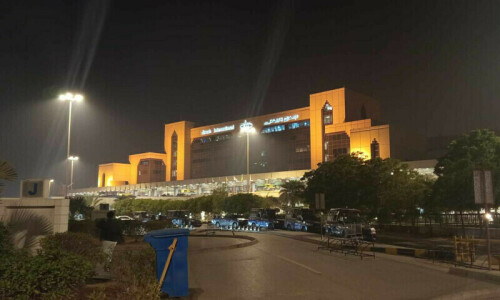Saudi Arabia’s health ministry on Thursday launched a health awareness kit, including one in Urdu, to promote the health and well-being of Haj pilgrims.
Haj, one of the fundamental pillars of Islam, is performed each year by millions of Muslims worldwide. Pakistan receives one of the highest Haj quotas from Saudi Arabia.
In a post on X, the Saudi health ministry said that the kit was available in eight languages. “In all languages, we care about pilgrims’ health. Explore the health awareness kit to promote health and well-being among pilgrims,” the post said.
The multilingual kit contained essential information for pilgrims, such as: preventing heat-related illnesses and managing health in extreme conditions, required vaccinations (meningitis, Covid-19, polio and yellow fever), managing chronic diseases, and accessing free health services during Haj. It also included short videos, social media assets, and printable posters.
Pakistan and Saudi Arabia signed the annual Haj agreement in January, which would see 179,210 Pakistani pilgrims perform Haj this year.
On Saturday, the Pakistan Haj Mission welcomed 38,229 pilgrims in Saudi Arabia (Madina and Makkah) under the government scheme since the start of the month-long pre-Haj flight operation on April 29.
The religious gathering has seen a high number of fatalities in recent years, with the number of deaths during last year’s Haj pilgrimage totalling 1,301 people. Saudi Arabia’s health minister had said that deaths were caused by pilgrims “walking long distances under direct sunlight without adequate shelter or comfort”.
At least 35 Pakistanis were reported to be among those who died during the pilgrimage in 2024.
Earlier this month, the government introduced additional facilities for pilgrims such as air-conditioned Mina tents, family-friendly accommodations, optimised luggage systems and high-quality transportation.
To safeguard the health and well-being of pilgrims, around 400 medical and paramedical officers would be deployed across dedicated healthcare facilities. These include one well-equipped hospital and nine dispensaries in Makkah, along with one hospital and two dispensaries in Madinah.
















































